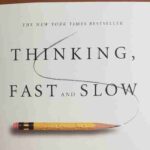Over 70% of Americans believe we should spend more money to reduce class sizes in public schools. At first glance, that seems like common sense—fewer students must mean more attention, and more attention must mean better outcomes, right?
Actually… no.
The research tells a different story. Unless a classroom is drastically small—say, five students—there’s little to no evidence that reducing class size improves student performance. According to research studies, class size reductions often have minimal effects unless implemented under very specific, costly conditions.
So why do so many people still believe the opposite?
Because they’ve heard it over and over again. And when you hear something enough times—especially from people you trust—it starts to feel true. This is a psychological phenomenon known as the illusion of truth effect. We mistake repetition for accuracy.
Now, let’s apply this to your business.
There’s a strong chance you’ve based some business decisions on ideas you’ve read online, heard on podcasts, or seen from competitors. But how often have you stopped to question whether those ideas are actually true?
For example, maybe you’ve heard:
- “You have to be on TikTok to reach new customers.”
- “The only way to grow is to hustle 24/7.”
- “Email marketing is dead.”
- “If you’re not using AI, you’ll be out of business in 6 months.”
Sound familiar?
But where’s the evidence? Just because it’s trending or someone said it with confidence doesn’t make it a universal truth. Unfortunately, in business (like in education), misinformation spreads easily—especially when it’s repeated enough. Political Action Committees (PACs) do this all the time: repeat something until the public starts accepting it as fact. It works in advertising. It works in politics. And yes, it works in the business world too.
That’s why you must learn to think for yourself.
Successful business owners don’t just accept what they’re told. They investigate. They test. They ask, “Does this apply to my business, my audience, my goals?”
So how do you develop this mindset?
Start by questioning everything—even the advice that seems like common sense:
- Where did this idea come from?
- Is there data to support it?
- Have I tested it for myself?
- What’s the source’s motive?
When you read a bold claim online, dig a little deeper. Is it backed by research or just repeated by influencers looking for likes? When you hear someone say, “Everyone’s doing it,” ask, “Should I?”
Related Post: Have You Defined Your Leap of Faith Assumptions?
In the digital age, repetition is cheap—and truth is expensive. But if you want to build a resilient business, you have to stop outsourcing your thinking.
Do your own analysis. Test new ideas. Validate what works for you. The more you practice this kind of critical thinking, the more confident and strategic your decisions will become.
What popular belief have you questioned recently, and what did you learn by challenging it?












